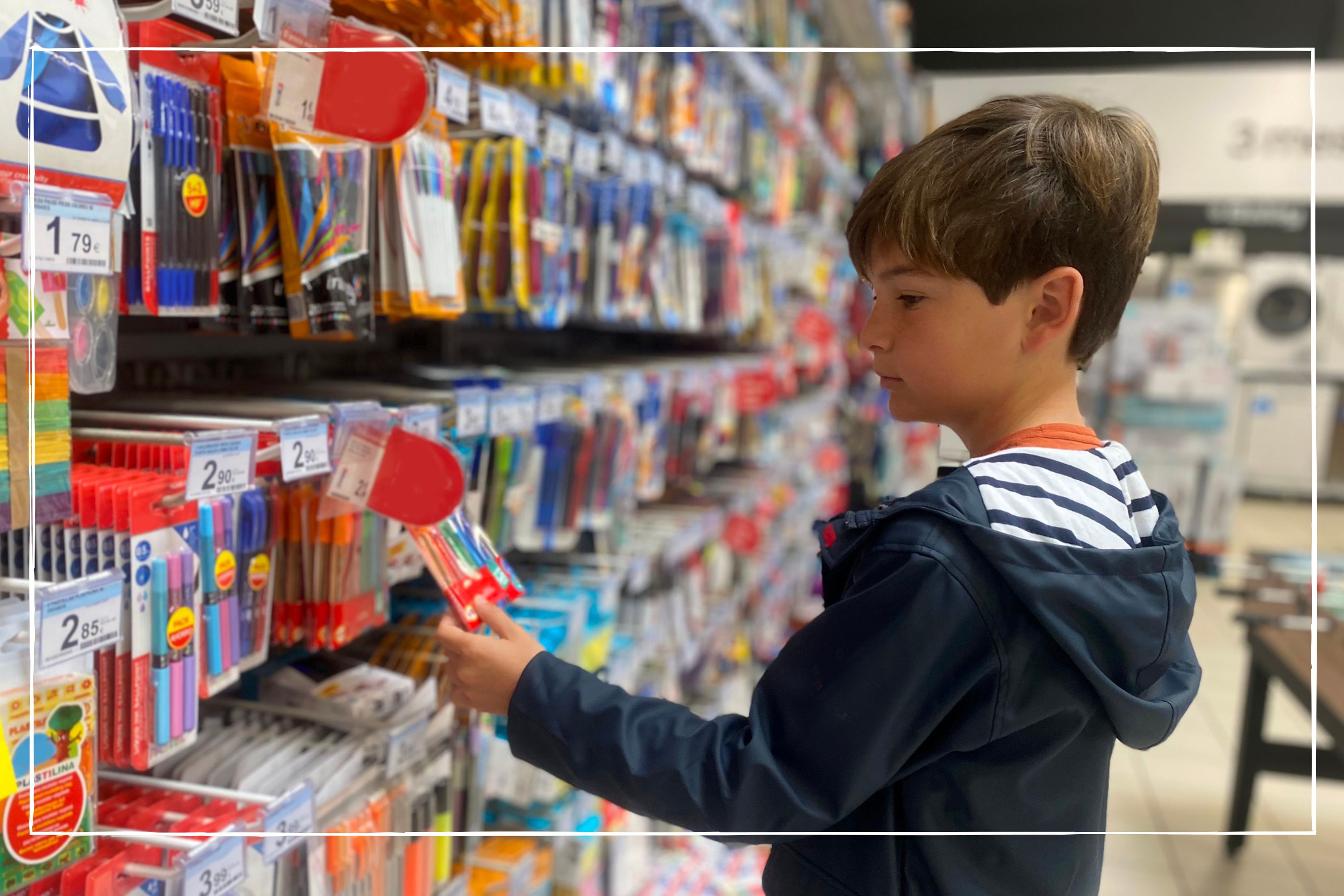How do credit cards work? Our finance expert explains how to use them sensibly
Wondering how do credit cards work, what types of credit card are available and the what's the best way to use them?

Credit cards can be useful to help you manage your money, but how do credit cards work?
It's an important question to answer as families are concerned about how to save money amid the cost of living crisis. While it helps to know how to make extra money, sometimes a credit card can be a suitable choice to help spread the cost of more expensive items.
It’s fair to say that credit cards can be something of a hazard. Get carried away and it can be easy to spend more than you can afford. And if you can't repay, you could see yourself in debt and your credit score negatively effected, making it harder for you to borrow money in the future. But, if they’re used correctly, they can actually help you manage your money and even let you borrow for free.
Personal finance editor at Interactive Investor, Alice Guy, explains: “A credit card can be a great way to spread the cost of bigger purchases. Some cards offer a 0% interest for up to 24 months. You could replace a big appliance with a 0% credit card and pay for it gradually.”
How do credit cards work?
When you pay for something with a credit card, that money is lent to you by your credit card provider. Over the course of a month your credit card provider will tot up everything you spend on it and issue you with a statement showing how much you owe.
You’ll have to pay something off each month – there’s normally a minimum repayment of around 3% of the amount you have spend on your credit card or £10 – but how much more you repay than that is up to you.
This is where credit cards can be dangerous. The longer you take to repay the debt, the more it will cost you overall. Only make minimum repayments and your debts will spiral and could take years to pay off. This is because you’ll start seeing interest charges added to unpaid interest charges from previous months. This is called compounding your debt.
GoodtoKnow Newsletter
Parenting advice, hot topics, best buys and family finance tips delivered straight to your inbox.
You’ll typically have up to 56 days to pay the money back interest-free. After that point, interest charges will be added to any money you’ve not paid back – unless you have a credit card with an extended 0% interest-free period. Always check the terms and conditions for your credit card - you should receive these as paperwork when you receive your card.
In an ideal world you’d pay off your balance before interest is charged – that way you haven’t paid a penny to borrow that money.
How much interest will I pay?
Interest rates on credit cards vary a lot. There are plenty of cards offering 0% interest, but the ‘typical’ rate on a standard credit card from a high street bank is currently around 23% or 24%.
This is the APR or Annual Percentage Rate and it shows how much interest you’ll pay on the money you have borrowed over the course of the year. Check out our handy guide if you're wondering what does APR mean.
But, just to confuse matters, you’ll also see a representative APR on adverts and promotions. This is the rate that at least 51% of applicants will get, but isn’t necessarily the rate you’ll get – you should treat it more like an indication. Your actual APR will depend on your credit record. People who have borrowed before and have a good record of making payments on time will get the best deals. Find out how to improve your credit score if you want to benefit from the best rates.
Head of consumer affairs at Experian (where you can check your credit score), James Jones, explains: “It’s harder to get a credit card if you have a poor credit record, but not impossible.” You’ll likely get a lower borrowing limit and pay a higher rate of interest.
It’s also important to understand that different types of spending may carry different interest rates, for example new purchases and balance transfers you might carry over from another credit card.
The real sting, though, can come from using you card to withdraw cash from a cash machine. This is because interest will be charged straightaway – there’s no interest-free period at all.
Types of credit card
To use credit cards to your advantage, you need to get to grips with the different types of credit card that are available:
- Purchase credit cards
- Balance transfer credit cards
- Rewards credit cards
- Travel credit cards.
Personal finance analyst at Hargreaves Lansdown, Sarah Coles, says: “Different cards are useful for different things. A card with 0% period on purchases is useful If you need to make a one-off purchase, and want to pay it off before interest is due.
“One offering a 0% period on balance transfers is a useful way to consolidate debts and repay them before you’re hit with interest charges. However, if you rack up new debts on your card, they may attract interest and they’ll definitely make repayments more difficult.”
| Type of credit card | How they can help you | What to think about |
|---|---|---|
| New purchases (0%) | The best deals offer 0% interest for up to two years – use it to spread the cost of large purchases | If you don’t pay off your balance during the interest-free period, interest charges will be added to your bill |
| Balance transfer (0%) | By moving your existing credit card debts onto a balance transfer card you can reduce your interest charges and repay your debt faster. The best deals offer 0% for two years or more. You’ll still need a plan to repay your debt – a good idea is to take your debt and divide it by the number of months your 0% (or low rate) lasts. That should be your monthly payment. | The low or 0% interest element of these cards normally only applies to balance transfers. If you also spend on the card, a higher rate of interest may be charged. If you don’t pay off the debt during the interest-free period, you’ll either have to move your balance onto another balance transfer card or start paying interest. Balance transfer cards often have a fee. This could be up to 3% of your balance. |
| Reward cards | These cards reward your spending – you might be able to get cashback, shopping discounts or airmiles. | These cards should only be used if you can clear your balance every month. Interest charges will quickly wipe out the value of your cashback or rewards. Any rewards need to be relevant to you |
| Travel cards | Travel cards typically have lower or no fees when you use them abroad. Regular cards will often charge ‘hidden’ foreign transaction fees. | These cards aren’t great for regular spending in the UK. Interest rates likely to be high so you would need to pay them off every month. Interest will still be charged immediately if you make a cash withdrawal at a foreign ATM |
How to choose a credit card
Once you have identified a reason to take out a credit card and have worked out which type will suit you best (see table above), it’s easy to shop around for the best deals at comparison websites, such as our sister site Go.Compare.
Look for cards offering the lowest interest rate for the job you need it to do, keeping an eye out for any additional charges or fees.
Before you apply for any card it’s a good idea to take advantage of free-eligibility checkers on comparison sites. These will let you find out what credit cards you’ll be eligible for without formally applying and risking damage to your credit record.
James Jones from credit agency Experian explains: “Each time you apply for credit the lender will carry out a hard credit check which other lenders can see. Too many hard credit checks in a short space of time can ring alarm bells, as lenders may see it as a sign of financial difficulty or even fraud.”
Once you know you’re eligible, you can apply for the credit card online.
Should I get a credit card?
“Before you take out a credit card you need to think about why you need it,” suggests Experian's James Jones. That could be to spread the cost of a big purchase – a new TV or washing machine perhaps - or to cut the cost of spending on holiday.
To make sure you don’t end up saddled with debt, it’s best to only use your card for its designated ‘job’ and have a clear plan for how you’ll repay it.
Personal finance analyst, Sarah Coles agrees: “Whatever you do, don’t think of your credit limit as an amount that you have available to spend.”
If you don’t have a specific need for your credit card or don’t have a plan for how you’ll repay the money, you’ll likely be better off without one.
Alternatively, if you’re considering a credit card to help you pay for regulars costs like food and bills, it’s usually better to think twice. This is because, if you can't pay it off in full each month, you may well struggle with repayments and see your money worries intensify.
What happens if I can’t afford to pay off my credit card?
“If you can’t afford to pay your credit card bill you have a few different options,” says Alice Guy from Interactive Investor. “If you have a good credit rating, you may be able to apply for a balance transfer card with a low or 0% interest period. You can then reduce your payments and pay the balance off gradually. There are also some balance transfer cards designed for people with poor credit ratings.”
If that’s not an option the next step is to get in touch with your credit card provider to explain your situation. “They may offer to reduce or pause your payments,” she adds.
You can also contact debt charities that offer free debt advice like Citizen’s Advice or Step Change. They can talk to lenders on your behalf and come up with a repayment plan for you.
The very worst thing that you can do is simply hope the problem goes away. If you can’t make repayments, you’ll start paying late payment penalties which will only make your problems bigger. The sooner you get help, the easier it will be to turn your situation around.
As well as being a mum, Rachel Lacey is a freelance journalist with more than 20 years' experience writing about all areas of personal finance and retirement planning. After 17 years at Moneywise magazine as both writer and editor, Rachel now writes for a variety of websites and newspapers as well as corporate clients. She is passionate about financial education and simplifying money matters for all.
-
 How to save money: 28 family-friendly money-saving tips for mums and dads
How to save money: 28 family-friendly money-saving tips for mums and dadsUnderstanding how to save money is key to limiting the impact of rising costs as much as possible
By Sarah Handley Published
-
 14 hidden benefits of your Amazon Prime membership
14 hidden benefits of your Amazon Prime membershipWe reveal the less-obvious perks of a Prime membership that will help you get the most value out of your subscription fee
By Rachel Wait Published
-
 14 surprising ways to spend your Tesco Clubcard vouchers - from restaurants and cinema passes to mini breaks and Disney+
14 surprising ways to spend your Tesco Clubcard vouchers - from restaurants and cinema passes to mini breaks and Disney+Tesco Clubcard vouchers can help you cut the cost of everything from groceries and travel to days out and cinema tickets
By Heidi Scrimgeour Published
-
 How to get Disney+ for free and save up to £79.90 a year
How to get Disney+ for free and save up to £79.90 a yearEven though the streaming giant ended its free trial offering, there are still multiple ways you can get Disney+ for free for up to 12 months
By Sarah Handley Published
-
 Parents of teens who have just taken their GCSEs urged to check child benefit status ahead of August deadline
Parents of teens who have just taken their GCSEs urged to check child benefit status ahead of August deadlineWith a child benefit deadline looming, some parents could see their payments reduced or stopped altogether - here's why
By Sarah Handley Published
-
 Parents should hold off buying this back to school staple 'as close to their first day as possible', says retailer
Parents should hold off buying this back to school staple 'as close to their first day as possible', says retailerWith parents turning their attention to kitting their kids out for the new school year, research suggestions which items should be left until the last minute
By Sarah Handley Published
-
 7 ways to save on back to school essentials, as its revealed parents will spend £2.3 billion in 2024
7 ways to save on back to school essentials, as its revealed parents will spend £2.3 billion in 2024We share ways you can get your child all the bits and bobs they need for the new school year, without breaking the bank
By Sarah Handley Published
-
 What day is child benefit paid around the bank holiday? Everything parents need to know
What day is child benefit paid around the bank holiday? Everything parents need to knowKnowing which day child benefit is paid when it comes to the bank holiday can help families plan their budgets accordingly
By Sarah Handley Published